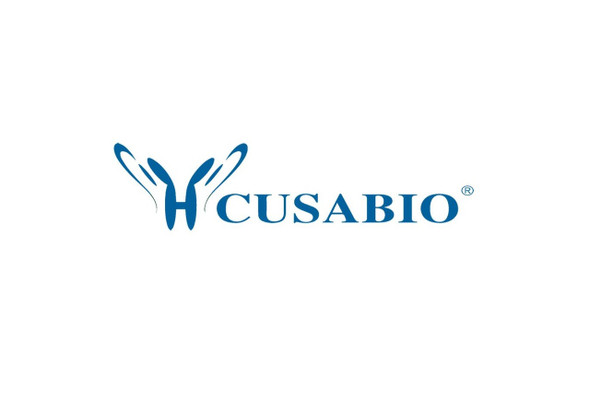Cusabio Escherichia coli Recombinants
Recombinant Escherichia coli Alpha-ketoglutarate-dependent dioxygenase AlkB (alkB) | CSB-EP356444ENV
- SKU:
- CSB-EP356444ENV
- Availability:
- 3 - 7 Working Days
Description
Recombinant Escherichia coli Alpha-ketoglutarate-dependent dioxygenase AlkB (alkB) | CSB-EP356444ENV | Cusabio
Alternative Name(s): Alkylated DNA repair protein AlkB DNA oxidative demethylase AlkB
Gene Names: alkB
Research Areas: Epigenetics and Nuclear Signaling
Organism: Escherichia coli (strain K12)
AA Sequence: MLDLFADAEPWQEPLAAGAVILRRFAFNAAEQLIRDINDVASQSPFRQMVTPGGYTMSVAMTNCGHLGWTTHRQGYLYSPIDPQTNKPWPAMPQSFHNLCQRAATAAGYPDFQPDACLINRYAPGAKLSLHQDKDEPDLRAPIVSVSLGLPAIFQFGGLKRNDPLKRLLLEHGDVVVWGGESRLFYHGIQPLKAGFHPLTIDCRYNLTFRQAGKKE
Source: E.coli
Tag Info: N-terminal 10xHis-SUMO-tagged and C-terminal Myc-tagged
Expression Region: 1-216aa
Sequence Info: Full Length
MW: 44.1 kDa
Purity: Greater than 90% as determined by SDS-PAGE.
Relevance: Dioxygenase that repairs alkylated DNA and RNA containing 3-methylcytosine or 1-methyladenine by oxidative demethylation. Has highest activity towards 3-methylcytosine. Has lower activity towards alkylated DNA containing ethenoadenine, and no detectable activity towards 1-methylguanine or 3-methylthymine. Accepts double-stranded and single-stranded substrates. Requires molecular oxygen, alpha-ketoglutarate and iron. Provides extensive resistance to alkylating agents such as MMS and DMS (SN2 agents), but not to MMNG and MNU (SN1 agents).
Reference: "Active site and complete sequence of the suicidal methyltransferase that counters alkylation mutagenesis." Demple B., Sedgwick B., Robins P., Totty N., Waterfield M.D., Lindahl T. Proc. Natl. Acad. Sci. U.S.A. 82:2688-2692(1985)
Storage: The shelf life is related to many factors, storage state, buffer ingredients, storage temperature and the stability of the protein itself. Generally, the shelf life of liquid form is 6 months at -20?/-80?. The shelf life of lyophilized form is 12 months at -20?/-80?.
Notes: Repeated freezing and thawing is not recommended. Store working aliquots at 4? for up to one week.
Function: Dioxygenase that repairs alkylated DNA and RNA containing 3-methylcytosine or 1-methyladenine by oxidative demethylation. Has highest activity towards 3-methylcytosine. Has lower activity towards alkylated DNA containing ethenoadenine, and no detectable activity towards 1-methylguanine or 3-methylthymine. Accepts double-stranded and single-stranded substrates. Requires molecular oxygen, alpha-ketoglutarate and iron. Provides extensive resistance to alkylating agents such as MMS and DMS (SN2 agents), but not to MMNG and MNU (SN1 agents).
Involvement in disease:
Subcellular Location:
Protein Families: AlkB family
Tissue Specificity:
Paythway:
Form: Liquid or Lyophilized powder
Buffer: If the delivery form is liquid, the default storage buffer is Tris/PBS-based buffer, 5%-50% glycerol. If the delivery form is lyophilized powder, the buffer before lyophilization is Tris/PBS-based buffer, 6% Trehalose, pH 8.0.
Reconstitution: We recommend that this vial be briefly centrifuged prior to opening to bring the contents to the bottom. Please reconstitute protein in deionized sterile water to a concentration of 0.1-1.0 mg/mL.We recommend to add 5-50% of glycerol (final concentration) and aliquot for long-term storage at -20?/-80?. Our default final concentration of glycerol is 50%. Customers could use it as reference.
Uniprot ID: P05050
HGNC Database Link: N/A
UniGene Database Link: N/A
KEGG Database Link: KEGG
STRING Database Link: STRING
OMIM Database Link: N/A









